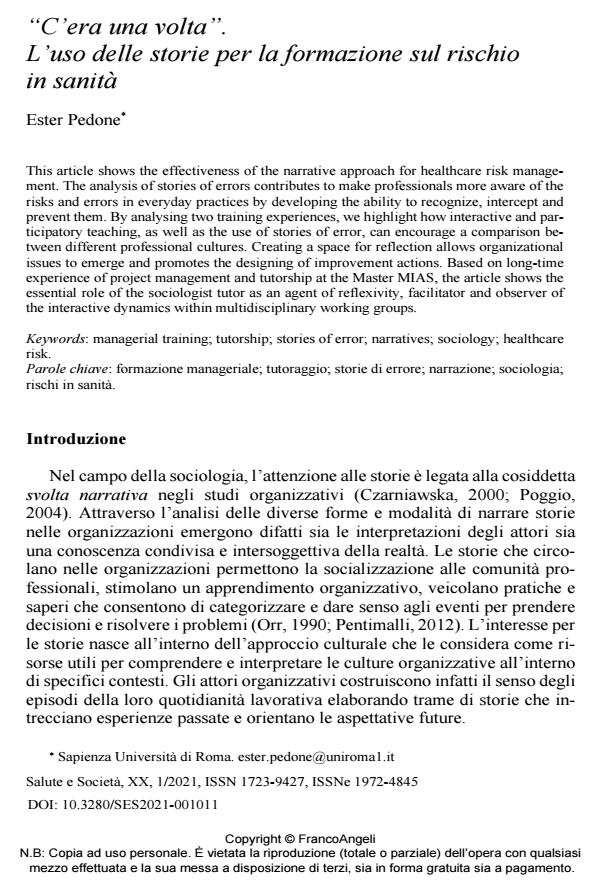"C’era una volta". L’uso delle storie per la formazione sul rischio in sanità
Journal title SALUTE E SOCIETÀ
Author/s Ester Pedone
Publishing Year 2021 Issue 2021/1
Language Italian Pages 16 P. 148-163 File size 256 KB
DOI 10.3280/SES2021-001011
DOI is like a bar code for intellectual property: to have more infomation
click here
Below, you can see the article first page
If you want to buy this article in PDF format, you can do it, following the instructions to buy download credits

FrancoAngeli is member of Publishers International Linking Association, Inc (PILA), a not-for-profit association which run the CrossRef service enabling links to and from online scholarly content.
This article shows the effectiveness of the narrative approach for healthcare risk manage-ment. The analysis of stories of errors contributes to make professionals more aware of the risks and errors in everyday practices by developing the ability to recognize, intercept and prevent them. By analysing two training experiences, we highlight how interactive and par-ticipatory teaching, as well as the use of stories of error, can encourage a comparison be-tween different professional cultures. Creating a space for reflection allows organizational issues to emerge and promotes the designing of improvement actions. Based on long-time experience of project management and tutorship at the Master MIAS, the article shows the essential role of the sociologist tutor as an agent of reflexivity, facilitator and observer of the interactive dynamics within multidisciplinary working groups.
Keywords: Managerial training; tutorship; stories of error; narratives; sociology; healthcare risk.
Ester Pedone, "C’era una volta". L’uso delle storie per la formazione sul rischio in sanità in "SALUTE E SOCIETÀ" 1/2021, pp 148-163, DOI: 10.3280/SES2021-001011